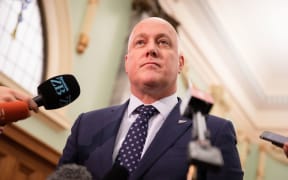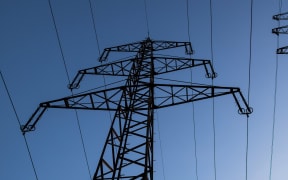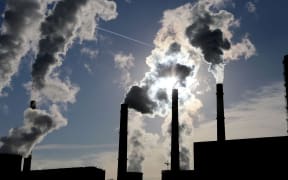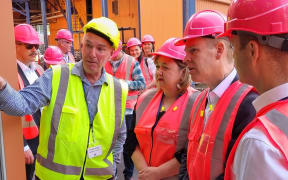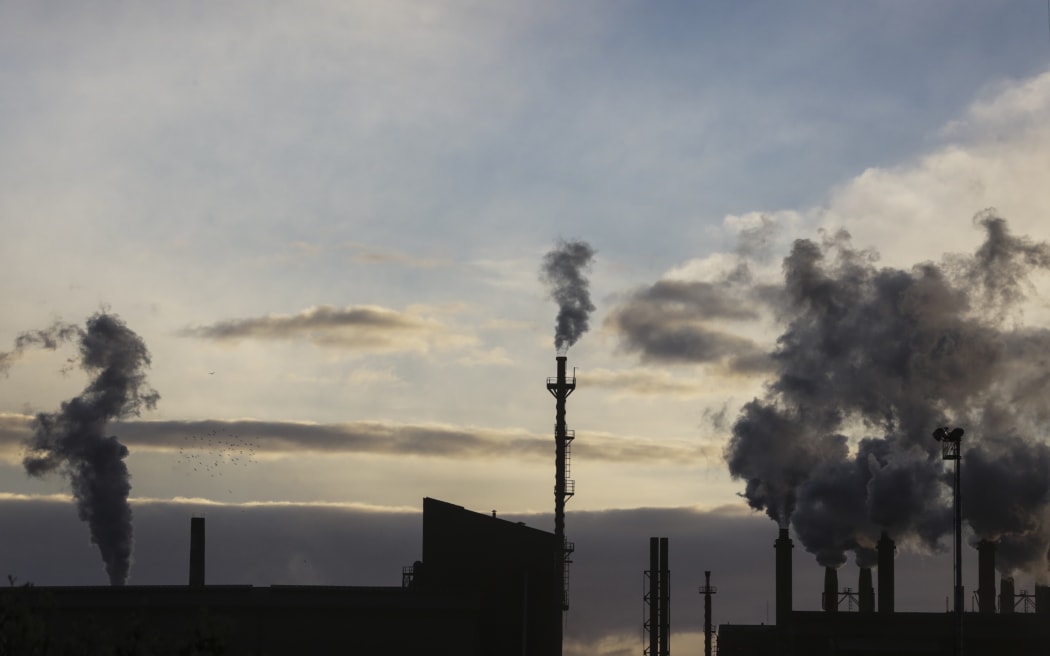
A now-scrapped government fund gave millions to companies like NZ Steel to wean them off their coal-fired furnaces. Photo: RNZ / Rebekah Parsons-King
The government is under pressure to show how it will meet its climate targets after scrapping a scheme it decried as "corporate welfare".
National campaigned on ending the Government Decarbonising Industry Fund (GIDI) and said its main tool for cutting planet-heating gases would be carbon pricing, rather than subsidising companies.
GIDI gave multi-million dollar grants to companies such as Fonterra and Australian-owned NZ Steel to wean them off their coal-fired furnaces.
Labour said if it let the carbon price rise high enough to get these companies to switch on their own, it would add costs to households by increasing the carbon cost component of petrol and electricity bills.
Before the election, Christopher Luxon said he would use the Emissions Trading Scheme, or ETS, to give companies an incentive to install clean energy without taxpayer grants. He criticised Labour for handing out grants to "in many cases profitable" companies.
GIDI met a swift end under National, and $640 million of unspent funding was returned to government coffers.
But there are questions over whether the ETS can fill the gap alone.
Treasury estimated GIDI would have generated 10 million tonnes of carbon dioxide savings between now and 2050 - between five and 10 times the [savings it expected from Labour's EV subsidies https://www.rnz.co.nz/news/national/505205/nz-will-meet-first-target-for-transport-emissions-cuts-without-ev-subsidy-simeon-brown-says (which were also scrapped)] over the same period.
A November slide presentation by energy officials, obtained by the Labour Party, warned ministers that killing GIDI could leave a gap in cutting heavy industry's emissions from 2026-2030, when GIDI had been expected to do most of the work of cutting industrial emissions.
The advice said in the long term, carbon pricing under the ETS was well placed to cut emissions, but in the near-term, the country needed other policies encouraging use of renewable power.
It said increasing the generation of renewable electricity - as National planned to - was needed, but not enough.
"Demand-side policies will be key for meeting the next couple of emissions budgets, especially if government stops GIDI funding," the briefing said.
"We need both supply and demand side policies. While supply side enablers such as consenting policies [helping renewable generation] are necessary, they won't be sufficient to deliver our climate targets, as they do not by themselves decrease emissions.
"We will also need policies that prompt demand shifts from fossil fuels to renewable energy."
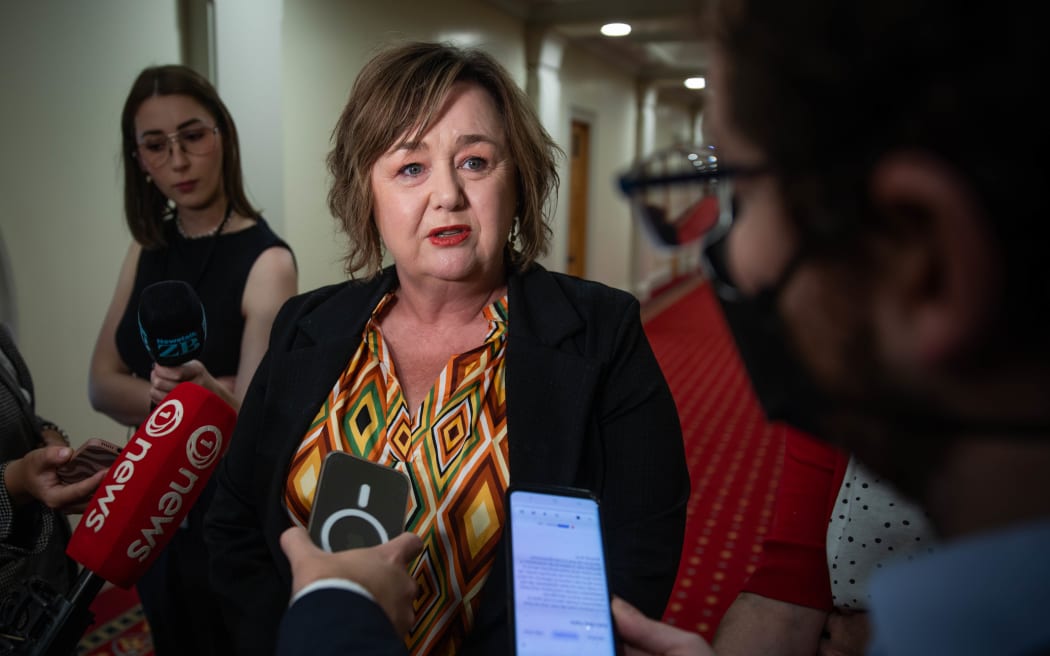
Megan Woods. Photo: RNZ / Angus Dreaver
Labour's energy spokesperson Megan Woods said the advice showed the government was "hanging its hat" on a policy of doubling renewable energy, even though advice showed that was not enough.
She said the carbon price would need to triple from around $60 a tonne to $150-200 a tonne to make it commercially feasible for big industrial users of coal and gas to switch.
"We are nowhere near that."
Independent advice from He Pou a Rangi Climate Change Commission said the ETS in its current form would not, on its own, drive enough changes to meet climate targets.
Climate activist Adam Currie of 350 Aotearoa said he assumed when GIDI was cut that the government would announce another plan - but it had not.
"It's just another cut in the death by a thousand cuts to climate (action)," he said.
However, oil and and gas lobbyist John Carnegie of Energy Resources Aotearoa said GIDI was wasteful and the government was right to rely on the ETS alone.
He said cutting emissions with subsidies such as GIDI only freed up more carbon credits for other companies to buy.
The ETS requires carbon emitters to buy enough credits to cover their emissions each year.
The number of tonnes of carbon dioxide that can be sold to companies is capped, in line with meeting climate targets.
If necessary, Carnegie said, the government should just lower the cap to get the carbon savings it wanted.
This month, a consultation paper put out by environment officials asked for feedback on lowering the cap, saying GIDI had achieved more than expected when the current ETS volumes were set.
It said the government could "lock in" those gains by selling fewer carbon credits.
Otherwise, there was a risk of surplus carbon credits making it harder to meet targets.
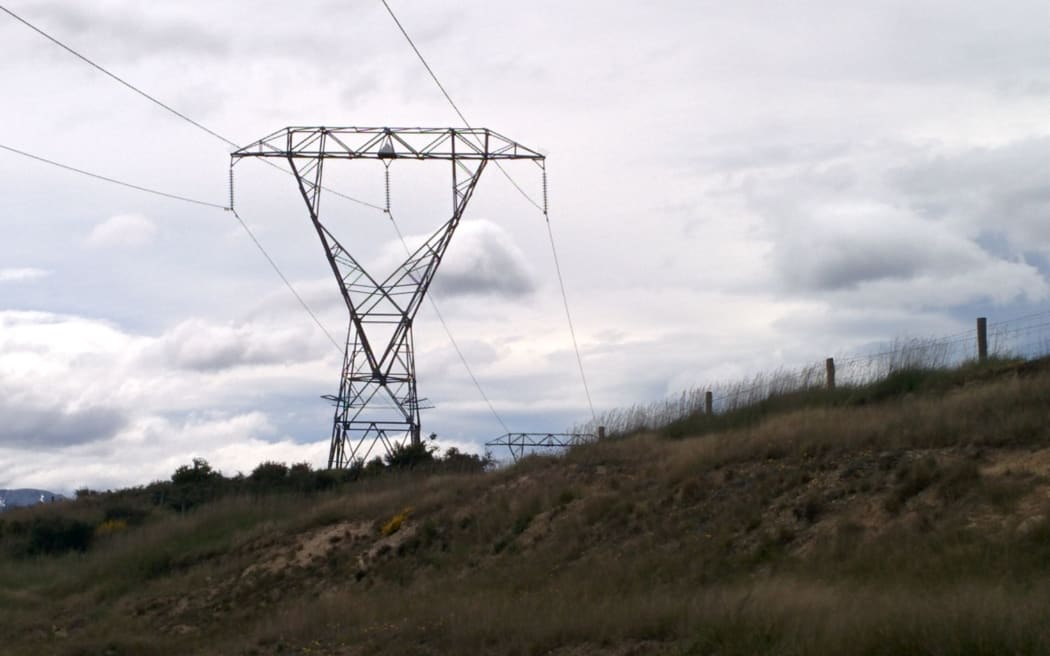
Labour baulked at raising carbon prices during its last term in government for fear of raising electricity bills. Photo: RNZ / Russell Palmer
Carnegie said that suggestion showed GIDI was a waste of money, because it only displaced work that could have been done with the carbon cap.
Woods, though, said using the ETS alone instead of GIDI would have required a huge spike in the carbon price.
Labour baulked at raising carbon prices during its last term, for fear of raising fuel and electricity bills - as fuel companies and electricity companies using gas and coal pay for their emissions.
Call for exemption to be continued
Carnegie said he supported continuing a major exemption where the Government gives free allowances to many large emitters.
The policy gives free credits to companies known as Trade-Exposed Emitters on the basis they need to stay competitive internationally, and to allay fears they might otherwise close or move overseas.
It means many of the country's biggest emitters do not pay for the vast majority of their emissions, including some of the biggest GIDI beneficiaries, such as NZ Steel, which used GIDI to part-fund an electric arc furnace.
Carnegie said even with free credits, companies had an incentive to cut emissions.
That was because they could sell the free credits they got from the government to other companies if they got their emissions down, he said.
Energy Minister Simeon Brown declined to be interviewed.
In an email he reiterated that the ETS was the government's main tool for meeting carbon goals, and repeated the commitment to making renewable electricity easier to build.
Results from a 2023 Ipsos Global Adviser report - supplied to top climate officials and released by the Ministry for the Environment this year - found New Zealanders supported climate action but only 31 percent thought the government had a clear plan, down a quarter from the year before.
